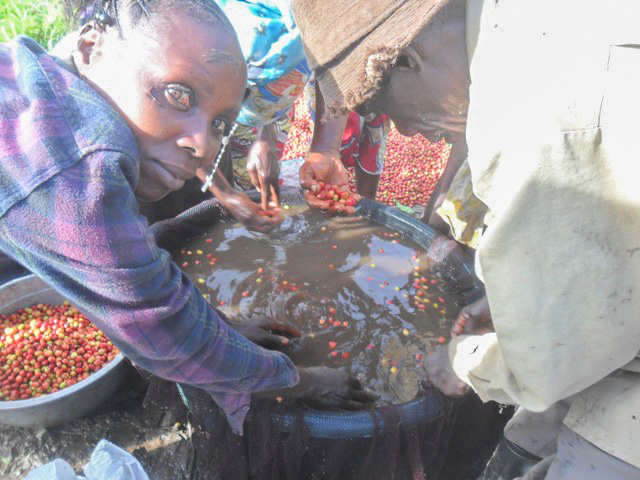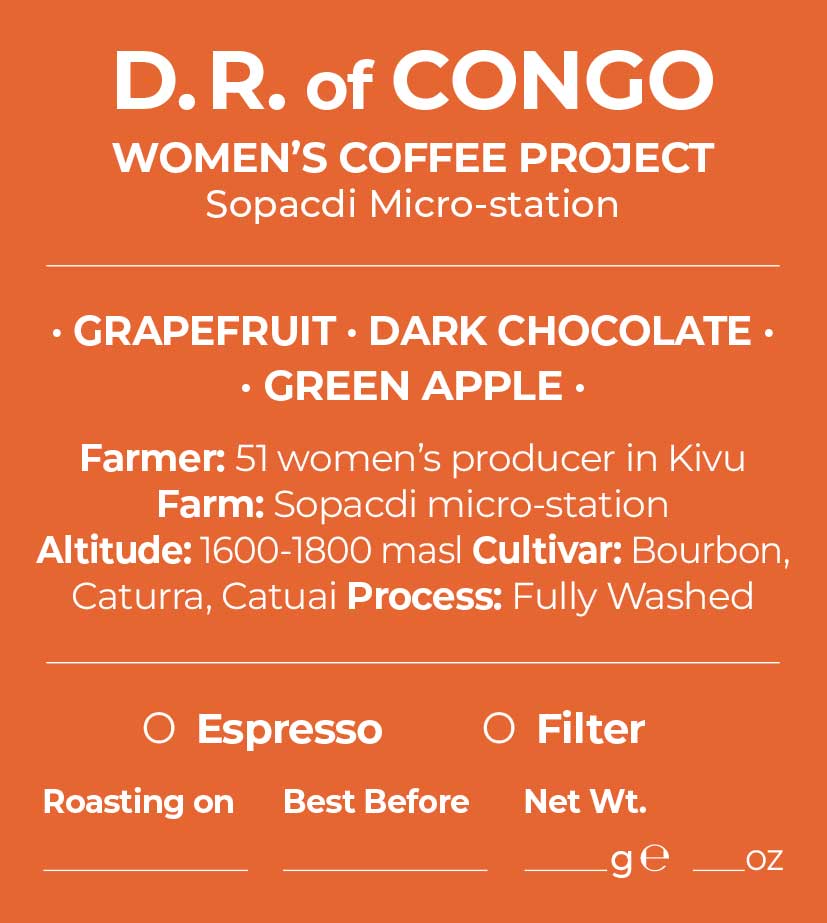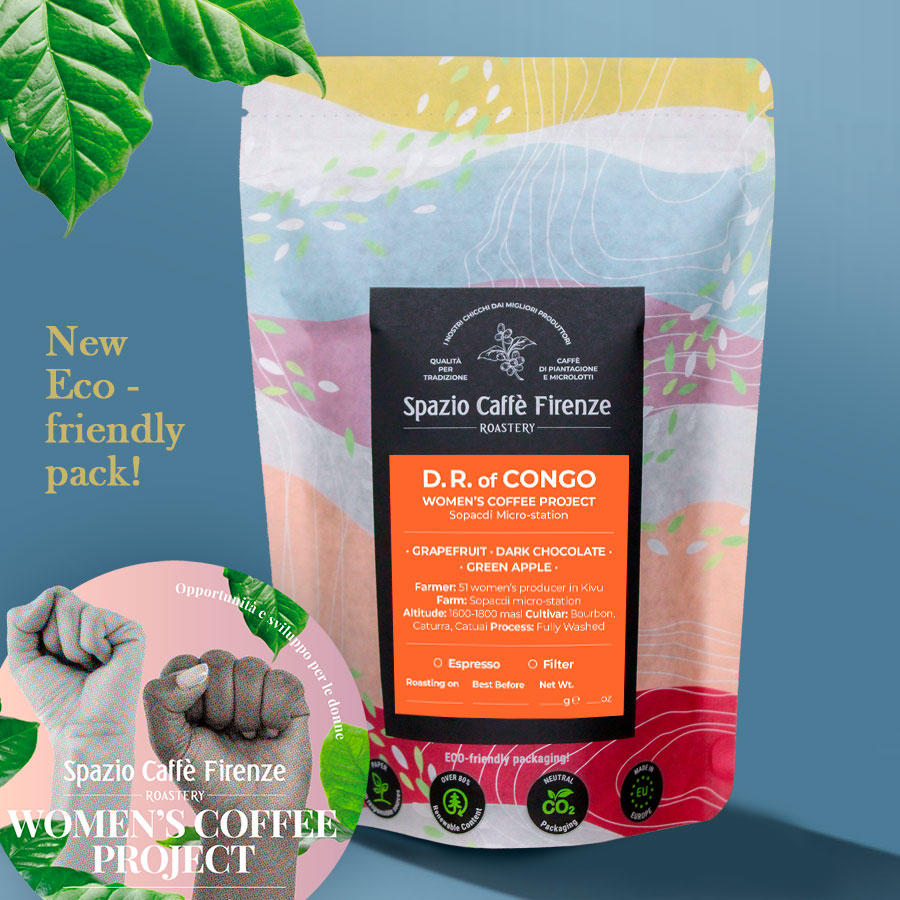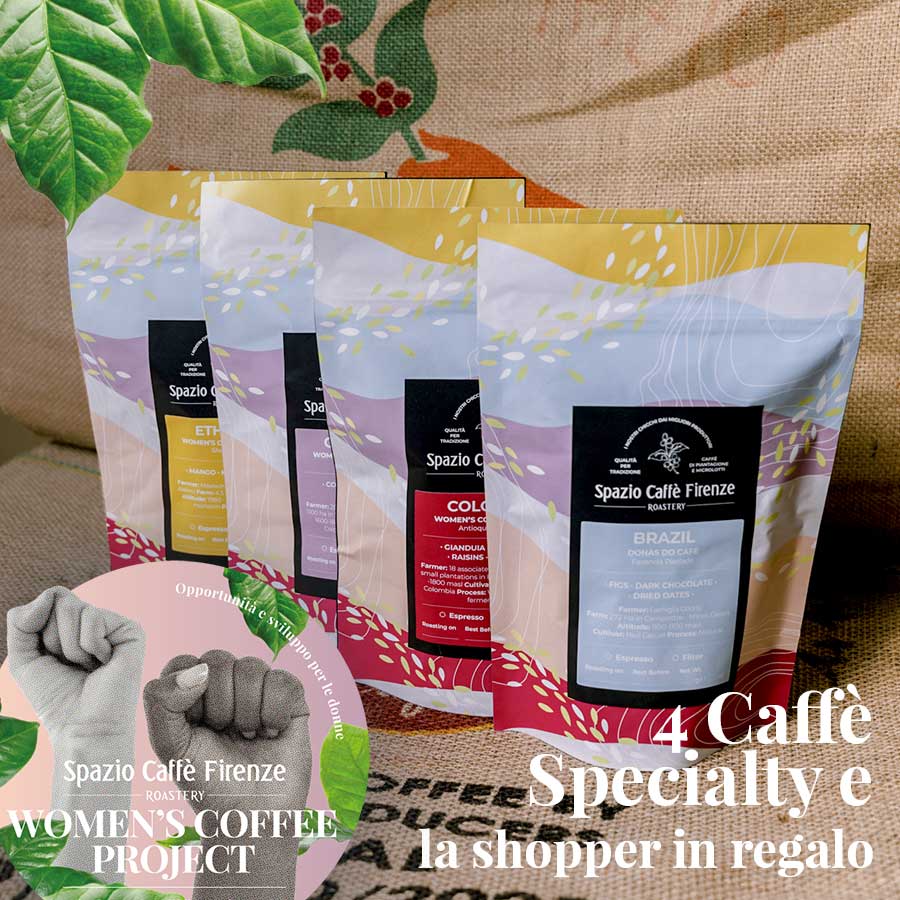D.R. of CONGO
Women’s Coffee Project
SOPACDI Micro-Station
Women Producer Program at SOPACDI. These specific offerings come from a group of women who live and farm in the villages of Mishebere and Ruhunde in the Kahele territory.
Congo Women’s Program
Women Producer Program at SOPACDI:
These specific offerings come from a group of women who live and farm in the villages of Mishebere and Ruhunde in the Kahele territory. SOPACDI has started this project to source and keep separate coffee from this group of growers in order to provide them a better income from specialty coffee as well as more financial independence and autonomy. The producers each own an average of 0.5 hectares and deliver coffee in cherry form to the washing station. There is a price premium paid directly to these women farmers to use as they see fit.
From SOPACDI:
Over 600 of SOPACDI’s 3,200 producer members are women. Many of these women farmers are widows who have lost their husbands in the war or by drowning in their attempt to smuggle coffee across Lake Kivu. From the outset, the cooperative has been concerned to address the particular difficulties faced by these widows – the Women’s Committee already has a representative on the organization’s board. But now, as part of a program rolled out by Fairtrade organization Twin, SOPACDI plans to take matters a step further. Like in many African countries, rural women play an important role in agriculture in Congo. However, as most land is owned by men, they remain economic dependent and have limited access to credit.
Twin’s empowerment project will help a number of cooperatives like SOPACDI to install gender equity and equality in all their activities. n addition, Twin supports the development of a market for women’s coffee so that women farmers can benefit directly from the crops they produce.
The market development for SOPACDI’s coffee produced by women was first created in 2009, when high quality roasters Matthew Algie in Scotland traded a small special edition of the cooperative’s coffee, produced by the women members. The marketing campaign, which was also rolled out online, focused on the stories of the women farmers. From the sale, SOPACDI’s women received 1,481 USD as Premium (40 cents/lb).
The premium we received is still small compared to the necessities, but it has already helped us with some basic needs,’ says Immaculee Nimavu Musangi, one of the women leaders at the cooperative, ‘For the first time, we were able to get together and buy each woman farmer 3 kg of salt and two blocks of Tembo soap.’
From this year onwards, a women’s premium is being paid on all purchases of SOPACDI coffee. In recognition of the fact that 20% of SOPACDI’s membership is female, roasters pay a 10 cents/lb premium on 20% the coffee they buy (thus adding 2 cents/lb to the overall price they pay for SOPACDI coffee). The women farmers have already prioritized their needs once the 2011 premiums are available – an estimated USD 8,000. A common shelter needs to be built, school fees paid, coffee fields maintained and medical expenses paid. The women would also like to be more engaged in the regional economy.
We need more support to ensure women are able to build their individual capacity so we are better prepared to take care of our families. Congolese women often are alone on this journey,’ Immaculee concludes.
SOPACDI’s case has proven that the market interest for specialty products like women’s coffee is real, providing that the quality is of the highest standard. As sales grow it will be important to find a level of premium that has an impact on women, while still remaining economical attractive to roasters. Women’s empowerment also requires a more structural change, which goes beyond women premiums. Twin is now engaging with SOPACDI and other cooperatives in the Great Lakes region to introduce a gender methodology that will enable them to engage farmers, both men and women, in analysing, assessing and changing their gender roles to improve their livelihoods and their business in a sustainable way.







